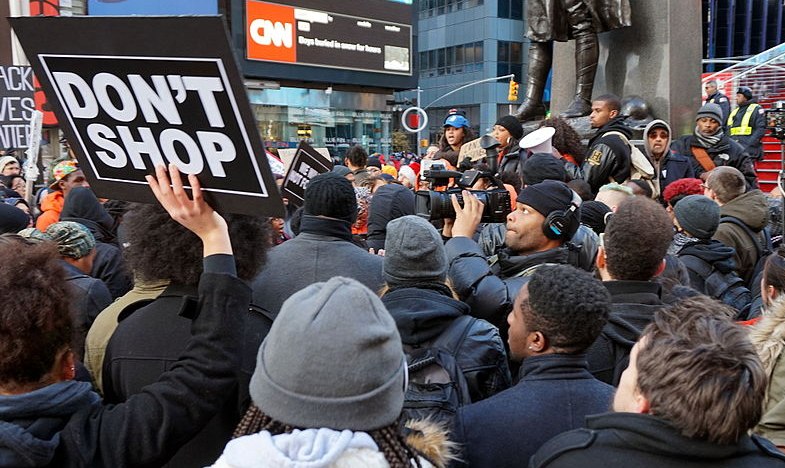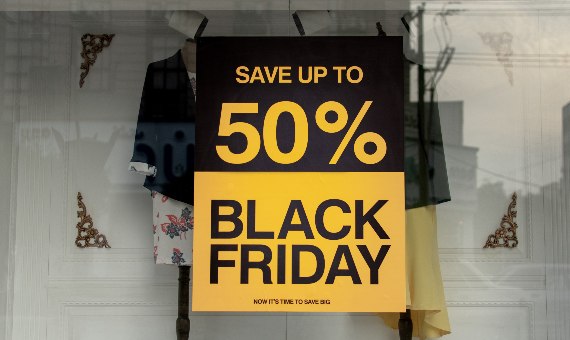The Black Friday phenomenon involves doing your Christmas shopping on the last Friday of November, before businesses raise their prices in response to the Christmas season´s increased demand. It’s an American tradition that has spread to many countries and has expanded with initiatives such as Cyber Monday, which focuses on purchasing tech items the Monday after. The Green Friday movement arose in response to Black Friday´s compulsive consumption and proposes an environmentally effective alternative of responsible and conscious consumption on that same day. Learning to consume consciously is the key to this counter proposal for this celebration that has expanded to a global level.

The origin of the Green Friday movement
The idea of creating a World Day against compulsive consumption was conceived by NGOs, environmental groups, small companies, and sustainable brands that promote ethical consumption and have the capacity to influence the environment in a positive way, according to Ecoembes, which includes 400 brands that participated in this initiative in Spain in 2019. At a global level, the Green Friday campaign is promoted by representatives of the European Commission and the organizations ECODES, WWF and Ecoserveis, with the aim of raising awareness among citizens about the need to learn to consume in a way that respects the environment, while our needs are being satisfied. More and more initiatives—such as clothing firms that use organic fabrics, those that defend animal rights and companies with inclusive factories and 100% sustainable manufacturing processes—are working in this direction outside of this iconic date.
Along with brands and companies that are aware of its environmental effects, organized civil society is also beginning to position itself against compulsive consumption. In 2019, environmental activists blocked an Amazon warehouse near the French capital in one of the many protests against Black Friday. According to a survey published in Statista and carried out that same year, 79 percent of French people think that this celebration encourages compulsive consumption and 56 percent also believe it causes wasteful consumption problems, while 51 percent recognize that Black Friday has consequences for the environment. Last year, the French Parliament approved an amendment that regulates the advertising of this celebration with the aim of combating wasteful and compulsive consumption. According to GEO Consulting, all of Europe is succumbing to Black Friday fever, as shown by the increase in sales volume by 11 percent between 2019 and 2018 along with the average transaction value, which reached €135 in 2019, according to data from the same consultancy.

According to an article in The Guardian, written by London Royal Holloway University marketing professor Alan Bradshaw, Black Friday is still the busiest shopping day of the year in the U.S. The British newspaper cites examples that illustrate the extreme maelstrom unleashed by the offers on these dates, for example, a Walmart worker died trampled by a huge crowd at the opening of a store on Black Friday in New York in 2008. As Bradshaw himself explains, the rejection of excess consumerism that this date promotes is not new. In the 1990s and 2000s, the culture of excess consumption had to confront an equally extreme anti-consumerism movement: Popular movements such as Adbusters and Reverend Billy and the Church of Stop Shopping that emerged during this period are proof of this.
2020: A key year for environmental awareness
In the current context, while activism has eased, the strengthening of initiatives that promote awareness and proactivity in developing respectful consumption options, which facilitate circular economy and recycling, continues. An example of this is the campaign launched in 2020 by a Swedish multinational to buy back used furniture from its customers. The price is double its original price in order to promote the recycling of materials and an awareness of the environmental consequences at the end of a product´s cycle of usage.
In addition, in the framework of the fight against the COVID-19 pandemic, 2020 poses a new dilemma for the average consumer: to make an online purchase or support local face-to-face commerce.The pandemic unleashed by the SARS CoV-2 virus revealed the delicate and imperative relationship between our planet´s health and that of human beings themselves, promoting the struggle to achieve the United Nations´ 2030 Agenda´s Sustainable Development Goals to curb global warming and climate change, two phenomena that, in any case, would facilitate the ideal scenario for the proliferation of new pandemics.
By Dory Gascueña for OpenMind
Comments on this publication